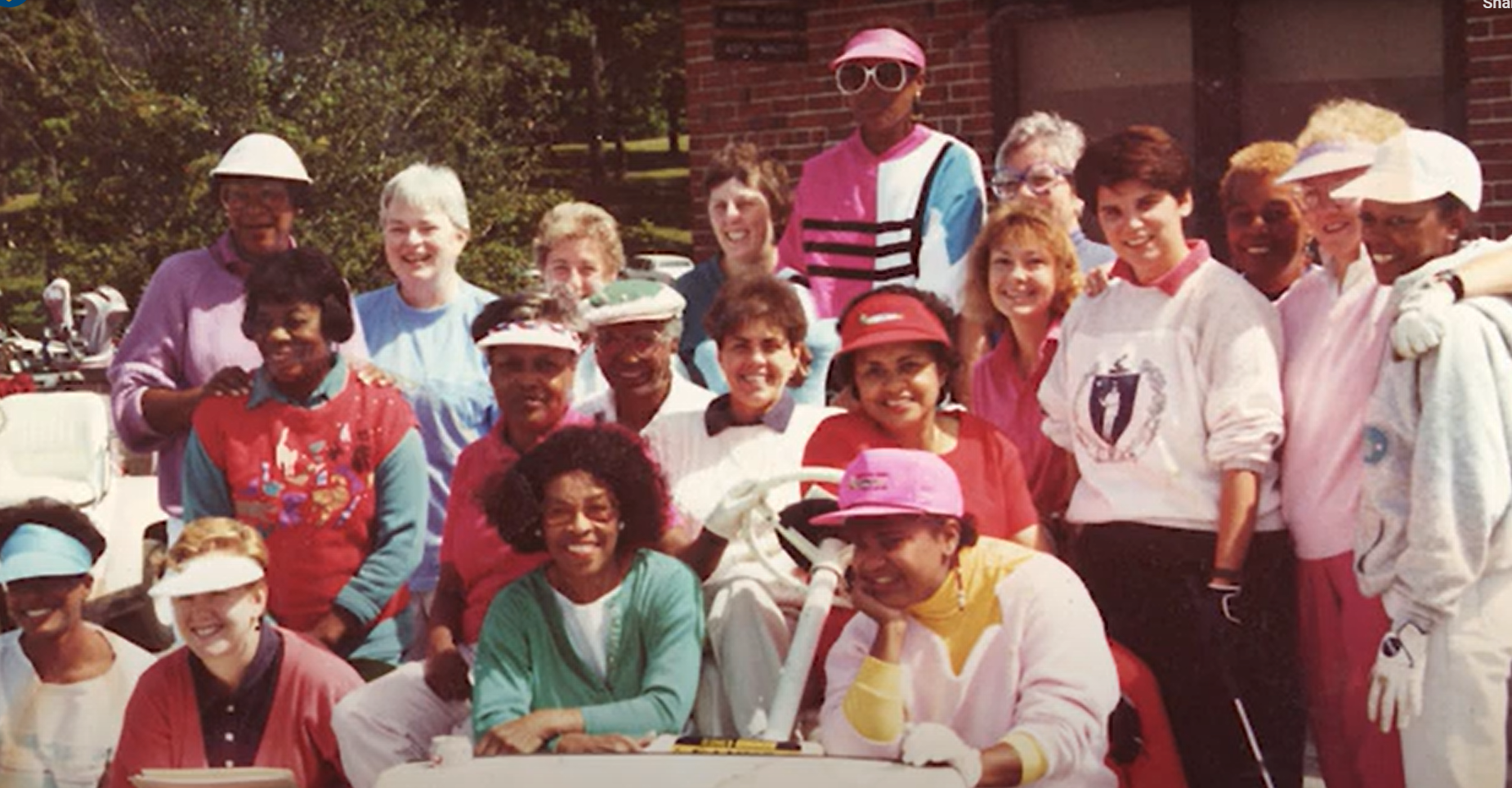
Our History
The Fairway Ladies Story
Women have always walked the fairways of William J. Devine Golf Course at Franklin Park, but in 1990, we claimed our own space. Encouraged by Keith Walcott and George Lyons, Bernice Harris gathered a group of regulars to form a women’s league. Irene Smith named us the Fairway Ladies, and our mission was set: to provide opportunities for diverse women—especially women of color—to play golf and give back to the community.
We started with 33 members in a nine-hole league, playing Friday evenings and Sunday afternoons. With time, we gained confidence, secured prime-time tee slots, and grew our membership. The Men’s Inner Club played between us and the public, serving as a buffer when women were not always welcomed on the course.
Through course management changes and advocacy efforts, we secured lasting access to Franklin Park. We also deepened our commitment to community service, raising funds for causes like The First Tee of Boston, Horizons for Homeless Children, and the Greater Boston Food Bank.
Today, with over 100 members and a strong presence in competitive and social golf, we honor those who paved the way. The Fairway Ladies are more than a league—we are a legacy of strength, camaraderie, and love for the game.
In Memoriam
Mary Pope 〰️ Margaret Fisher 〰️ Nina Rosen〰️ Betsy Witt 〰️ Kay Dodds 〰️ Irene Smith 〰️ Edris Lake 〰️ Dorothy (DC) Taylor 〰️ Bernice Harris 〰️ Deenie Hayes 〰️ Jean Carr Walsh 〰️ Joanne Gurry 〰️ Maura Wilkins 〰️ Cathy Nally 〰️ Sheila Grandfield 〰️ Vera Butler 〰️ Mary Moran
Mary Pope 〰️ Margaret Fisher 〰️ Nina Rosen〰️ Betsy Witt 〰️ Kay Dodds 〰️ Irene Smith 〰️ Edris Lake 〰️ Dorothy (DC) Taylor 〰️ Bernice Harris 〰️ Deenie Hayes 〰️ Jean Carr Walsh 〰️ Joanne Gurry 〰️ Maura Wilkins 〰️ Cathy Nally 〰️ Sheila Grandfield 〰️ Vera Butler 〰️ Mary Moran
History of the William J. Devine Golf Course
The William J. Devine Golf Course at Franklin Park has a rich history that reflects both the evolution of the sport and the broader social changes in the city. Established in 1896, it is one of the oldest public golf courses in the United States and has long been a vital recreational space, particularly for communities of color and women golfers seeking greater access to the sport.
Early Years and Development
Designed as part of the Emerald Necklace park system envisioned by landscape architect Frederick Law Olmsted, Franklin Park was initially created as a public green space. Golf became a part of the park’s offerings in the late 19th century, and the course quickly became a staple for local golfers. Over time, William J. Devine Golf Course became a crucial alternative to private, exclusionary clubs, allowing a more diverse population to enjoy the sport.
Struggles and Revival in the 1980s
By the 1980s, however, the course had fallen into neglect due to underfunding and lack of maintenance. It was at risk of being lost altogether until a coalition of Black golfers, community activists, and local leaders came together to restore it. Led by the Franklin Park Golfers Association (FPGA) and figures like Archie Williams, the group secured funding and volunteered their time to rehabilitate the course. Their efforts not only revitalized the greens but also reinforced Franklin Park’s role as a welcoming, inclusive space in a sport long known for exclusivity.
Expanding Access for Women Golfers – The Fairway Ladies of Franklin Park
In addition to breaking racial barriers, Franklin Park Golf Course has been instrumental in expanding access for women in golf. One of the most influential groups in this effort has been the Fairway Ladies of Franklin Park, a women’s golf league dedicated to promoting female participation in the sport. The league has played a crucial role in creating opportunities for women—particularly women of color—to learn, compete, and foster a strong sense of community on the course.
A Hub for Diversity in Golf
Franklin Park Golf Course has been significant in advancing diversity in golf. Historically, it provided a rare space for Black golfers and women golfers to play when other courses and clubs remained segregated or unwelcoming. Over the decades, the course has hosted numerous tournaments promoting inclusivity, including the annual Charlie Sifford Championship, named after the first African American golfer to earn a PGA Tour card.
Present and Future
Today, Franklin Park Golf Course continues to serve Boston’s diverse community, offering affordable and accessible golf opportunities. The work of organizations like the Fairway Ladies of Franklin Park ensures that women’s representation in the sport continues to grow. The course’s legacy as a symbol of racial and gender inclusion and community-driven preservation remains a vital part of its identity. Franklin Park stands as both a historic landmark and a reminder of the power of grassroots activism in protecting public spaces and expanding opportunities for all.
Discover the rich history of Franklin Park and the William J. Devine Golf Course. Home to the Fairway Ladies, this Boston gem has been a hub for golf and community for generations.
Archival footage: William J. Devine Golf Course at Franklin Park






